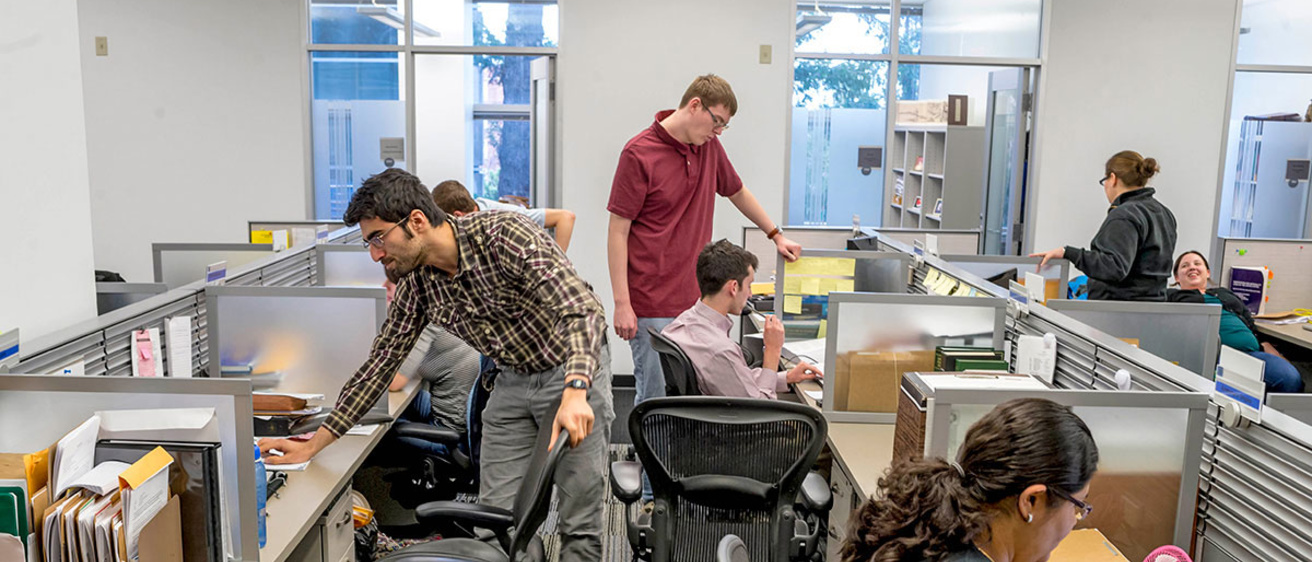Education, in practice
In the Law Clinic at Iowa Law, students act as attorneys, not interns. They learn necessary skills that cut across practice areas, from client interviewing and case theory development to cultural competence and resilience. Students have primary responsibility for the representation of their clients at all stages of the legal process and learn to use and trust their legal judgment.
The Law Clinic functions like a single law firm with several distinct practice groups, including: the Community Empowerment Law Project, Federal Criminal Defense, Federal Impact Litigation, Immigration, and Technology Law. The Legal Clinic is unique in that students can choose to focus on one area of law or explore different interests by participating in two practice groups.
Recent clinic students have:
- Taken depositions and successfully represented clients in mediation to settle their employment discrimination claims
- Conducted drive-in and outdoor will signing ceremonies during the pandemic
- Filed successful motions under the First Step Act of 2018 for reduced sentences based on crack-cocaine sentencing disparities
- Designed an advocacy plan that led to the creation and passage of Iowa City’s hate crime ordinance
- Argued a case before the Iowa Supreme Court about preemption and the Deferred Action for Childhood Arrivals (DACA) program
- Advocated at the Iowa statehouse in support of legislation to strengthen protections for mobile home owners
Law Clinic practice areas
Community Empowerment Law Project
Advance racial, economic, and social justice in Iowa through collaborative representation of organizations, communities, and government entities in transactional and policy matters, including strategic planning, design of advocacy campaigns, and legislative drafting.
Federal Criminal Defense Clinic
Represent indigent individuals charged with federal crimes in the US District Courts of Iowa and engage in post-conviction and decarceration litigation in the US Courts of Appeals for the Eighth and Sixth Circuits.
Immigration Advocacy
Represent juveniles and adults in deportation/ removal proceedings and affirmative applications, including humanitarian relief, legal permanent resident status, and naturalization, and advocate on legal and policy issues affecting the civil rights of immigrants and their communities.
Federal Impact Litigation Clinic
Represent immigrants and immigrant organizations, litigating civil cases in federal court at the intersection of immigration, civil rights, and administrative law. Draft pleadings, including complaints, motions, opposition briefs, and motions for summary judgment. In some cases, students may engage in discovery, negotiations with federal government lawyers, and argue in hearings and status conferences before federal judges.
Technology Law
Represent organizational clients on questions related to how technology affects the lives of real people. Students will work in teams on matters that advance their client’s advocacy goals and will use whatever lawyering approach makes the most sense in context. This could include litigation, legislative advocacy, public education, seeking or analyzing public records, or pursuing policy change. In all matters, students should expect to do deep legal research, extensive writing, advise their clients on strategy, and otherwise advance their client organization’s mission and goals.
Clinic Registration
To learn more about eligibility and the application process, visit Law Clinic Registration Information.
Clinical law faculty

Bram Elias

Daria Fisher Page

Megan Graham

Alison K. Guernsey

